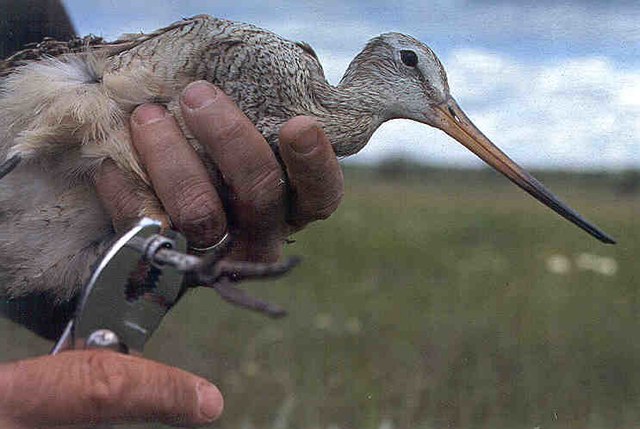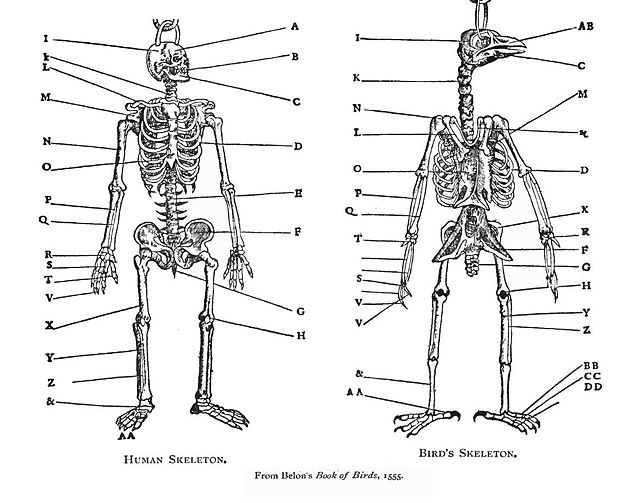Ornithology is a branch of zoology that concerns the study of birds. Several aspects of ornithology differ from related disciplines, due partly to the high visibility and the aesthetic appeal of birds. It has also been an area with a large contribution made by amateurs in terms of time, resources, and financial support. Studies on birds have helped develop key concepts in biology including evolution, behaviour and ecology such as the definition of species, the process of speciation, instinct, learning, ecological niches, guilds, island biogeography, phylogeography, and conservation.
A marbled godwit being ringed for studies on bird migration
A collection of bird skins, belonging to the family Cotingidae
Geese from a wall panel from the tomb of Nefermaat, Egypt c. 2575–2551 B.C.
Belon's comparison of birds and humans in his Book of Birds, 1555
Zoology is the scientific study of animals. Its studies include the structure, embryology, classification, habits, and distribution of all animals, both living and extinct, and how they interact with their ecosystems. Zoology is one of the primary branches of biology. The term is derived from Ancient Greek ζῷον, zōion ('animal'), and λόγος, logos.
Conrad Gessner (1516–1565). His Historiae animalium is considered the beginning of modern zoology.
Animal anatomical engraving from Handbuch der Anatomie der Tiere für Künstler.
Kelp gull chicks peck at red spot on mother's beak to stimulate the regurgitating reflex.







